The history of the Rolex GMT-Master goes all the way back to 1954. This is when the brand introduced the first reference 6542. Rolex developed the watch in close collaboration with Pan American Airways for its pilots. What some people don’t know (and what I didn’t, until recently) is that Rolex also developed a left-handed version of the GMT-Master ref. 6542.
There’s not much known about that particular execution of the GMT-Master “Destro”, besides the production year (1959) and that it was auctioned back in 2018 via Phillips Auctions. What amazed me is that the folks at Rolex didn’t communicate anything about this during the introduction of the new GMT-Master II 126720VTNR when we met them in Geneva. Last week, when we met with them again, they indicated it was indeed something they’ve done in the past. But in the official communication or on the Rolex website, there’s no mention of it.

Image via Phillips Auctions
Other than today’s GMT-Master II “Destro” and the reference 6542 from 1959, there have been some other Rolex models with the crown on the left as well. These were mainly pieces that the brand built on commission, except for the King Midas from the 1960s.

Rolex GMT-Master II 126720VTNR
When Rolex introduced the new GMT-Master II 126720VTNR, people went berserk over it. As always, a lot of angry people didn’t like this watch for left-handed people, nor the colorway, nor the date window at 9 o’clock. But, there were probably just as many people who were heavily into it. We saw the watch during Watches And Wonders and just let it sink in for a while. Then, last week, we finally got our hands on the new Rolex GMT-Master II 126720VTNR “Destro”. Destro translates to “right” in Italian, meaning that the watch is for the right wrist. It’s for left-handed people, or at least that’s what you would think.
I know quite a few people who are right-handed and still wear their watches on the right wrist. Some do it for comfort reasons, but I also know of two people who wear it on their right wrist because as young children, they saw their parents doing the same. Their parents were left-handed, though.

A destro watch on the left wrist
Anyway, I tried the watch on my left wrist, as that’s also a habit for me. I didn’t even think of wearing it on the right wrist. My colleague Lex did, though, despite being right-handed. We just didn’t shoot an image of that, so you have my apologies. The GMT-Master II “Destro” is available on an Oyster bracelet or on a Jubilee bracelet, and the latter adds €200 to the retail price. But retail schmetail. The prices for the GMT-Master II 126720VTNR are north of €50,000 on the market. But let’s discuss the watch instead of repeating the lack-of-delivery mantra in every Rolex article. That said, I’ve seen a number of people on social media who have received their GMT-Master II “Destro” watches from the AD already.

It remains the perfect travel companion
When I worked for a bank (which seems like a lifetime ago), I traveled to our offices in different timezones (NYC, Singapore, and London). It was a perfect reason to bring my Rolex GMT-Master II (16710) from 2006. Although the GMT-Master II has changed quite a bit since then with its ceramic bezel (since 2007), beefier case, and the new generation of movements, it works exactly the same. You set the hour hand to the local time zone, and the GMT hand indicates home time and whether it’s day or night over there. The colors of the bezel indicate day/night, but the 24-hour scale will also let you know if it’s a good time to call or text home. Some people call this a “true GMT” or travel GMT, whereas the one that lets you set the GMT hand independently is often referred to as an “office GMT”.

The date at 9 o’clock
The header image of this article could have tricked you a bit, as it shows the watch upside down. I wanted to use a different image first, but I thought it was a funny angle because it shows the watch how some of you would have preferred it. But Rolex does its own thing and has done so forever. After looking at this watch for quite a while, there’s still something that ticks me off a little bit.
#gallery-1 {
margin: auto;
}
#gallery-1 .gallery-item {
float: left;
margin-top: 10px;
text-align: center;
width: 33%;
}
#gallery-1 img {
border: 2px solid #cfcfcf;
}
#gallery-1 .gallery-caption {
margin-left: 0;
}
/* see gallery_shortcode() in wp-includes/media.php */
It’s not the crown on the left side. I never operate a crown while the watch is on the wrist, nor does a Rolex crown stick into the top of my hand (unlike some other watches with large crowns). It’s also not the green color or the order of the colors on the Cerachrom bezel. Instead, it’s the date at 9 o’clock.

I have a weak spot for the Tudor Pelagos LHD, for example. It’s the one Tudor I would get if I had to pick one. Here, you will have a destro watch with the date at 3 o’clock. It immediately makes it look better, in my opinion, at least when wearing it on the left wrist. And here’s the thing: the date at 9 o’clock can make sense for those who are used to wearing their watches on the right wrist. Perhaps for left-handed people, it’s more convenient to have it at 9 o’clock. That way, they can still check the date while the watch is partially covered by a cuff or sleeve.

If I wore my watch on the right…
I love a good story, and I think the folks at Rolex “forgot” to tell the story about the GMT-Master II 126720VTNR and why they decided to put the crown on the left and the date at 9 o’clock. It could have made a little bit of a difference and made people understand why Rolex did what it did. The GMT-Master II “Destro” is not for me, but if I were lefty or wore my watch on the right wrist for whatever reason, I would definitely give this a try.

The Rolex GMT-Master II “Destro” ref. 126720VTNR has the same specifications as the other GMT-Master II models when it comes to its dimensions and movement. It’s a 40mm case, available on an Oyster or Jubilee bracelet, powered by Rolex caliber 3285, with an accuracy of ±2 seconds per day on average and a power reserve of 70 hours. The GMT-Master II models have a water resistance of 100 meters/330 feet.
The retail price of the watch is €10,500 on the Oyster bracelet and €10,700 on the Jubilee bracelet. An overview of all our Rolex coverage can be found here.

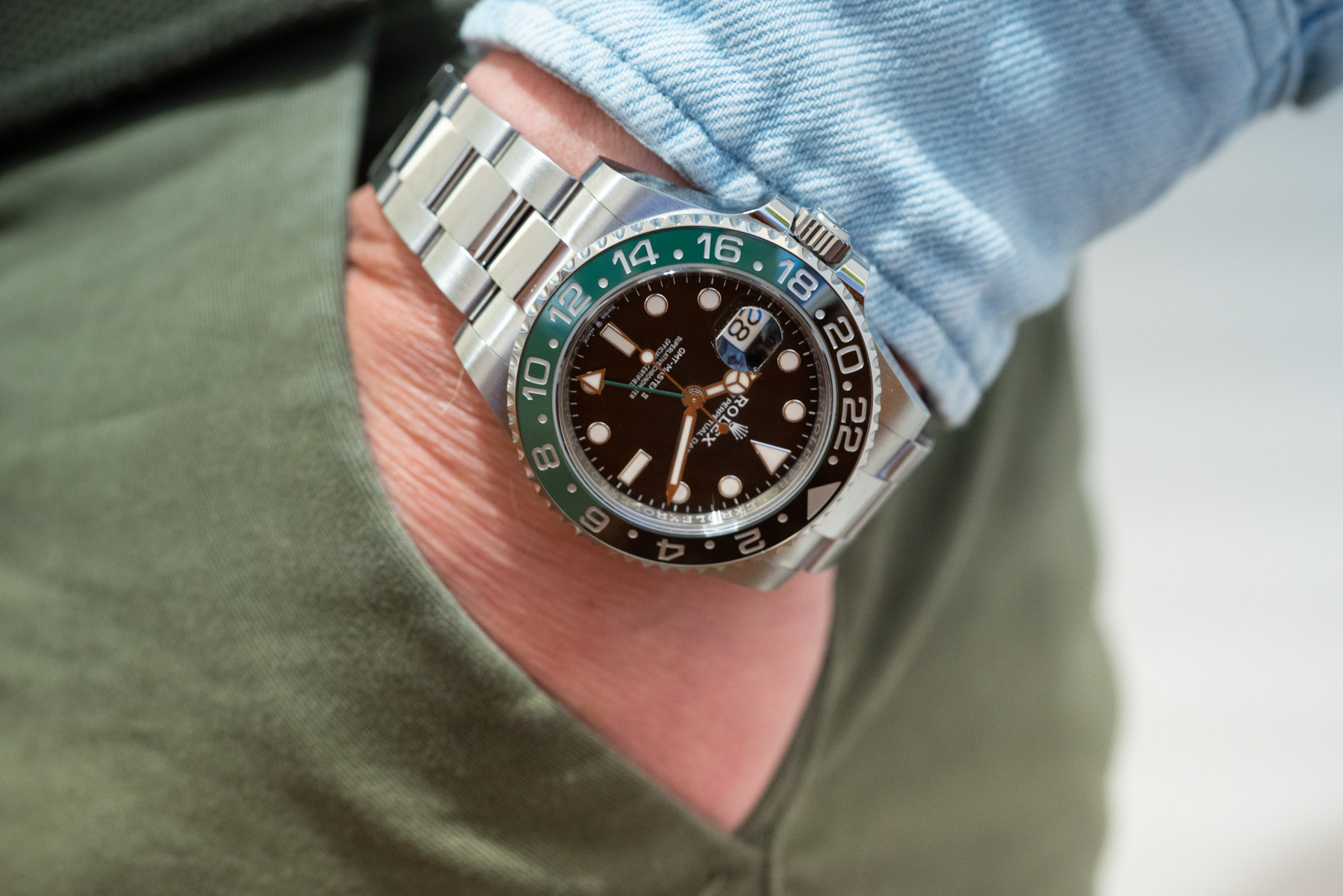


















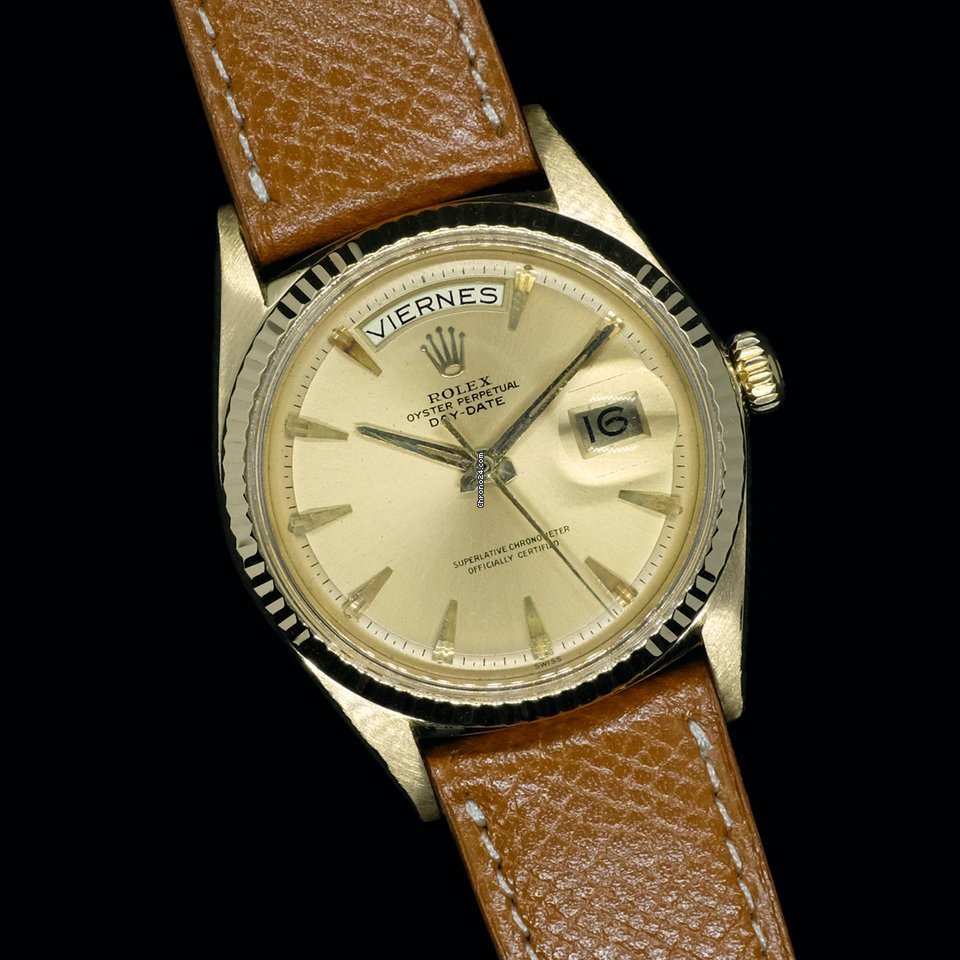
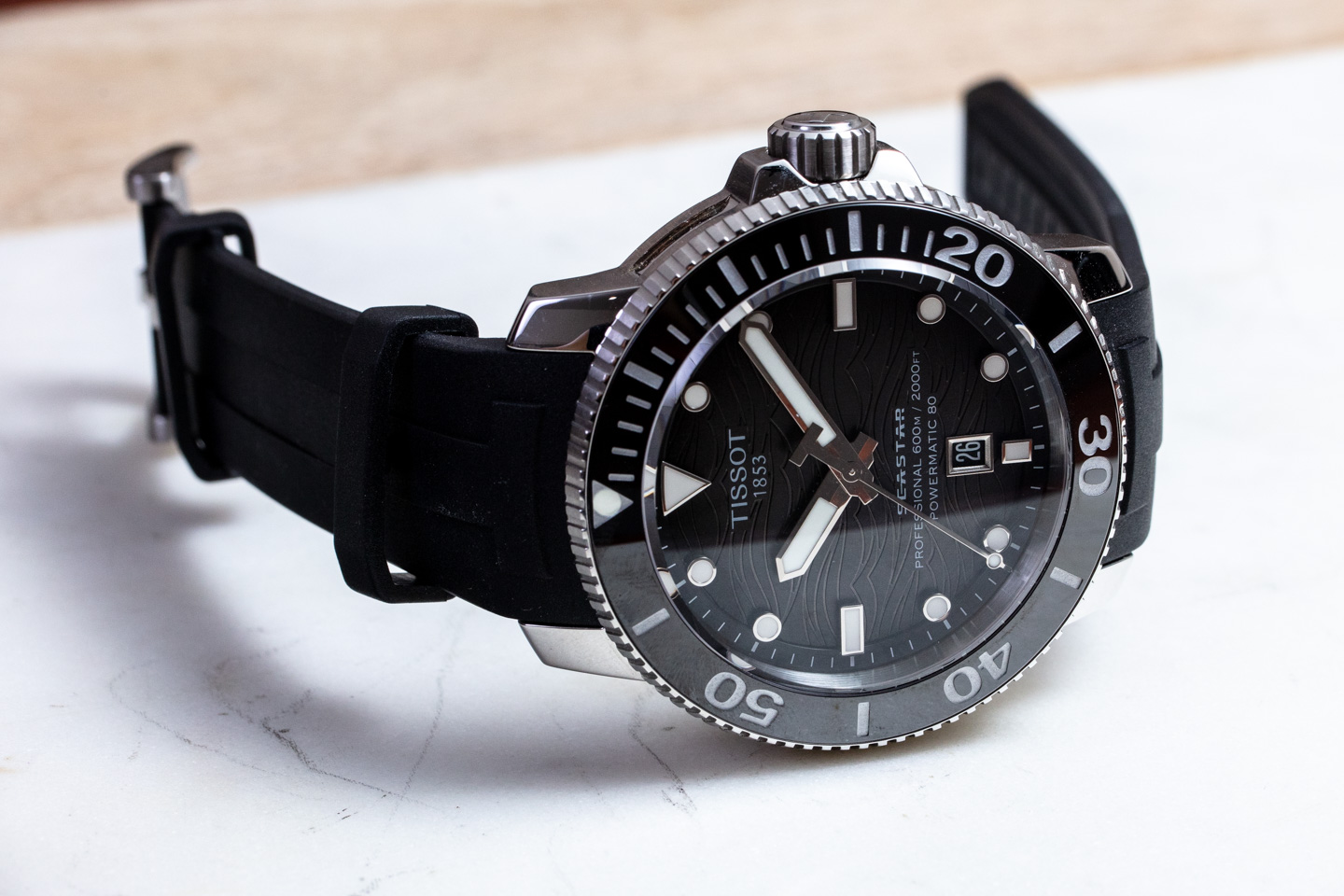
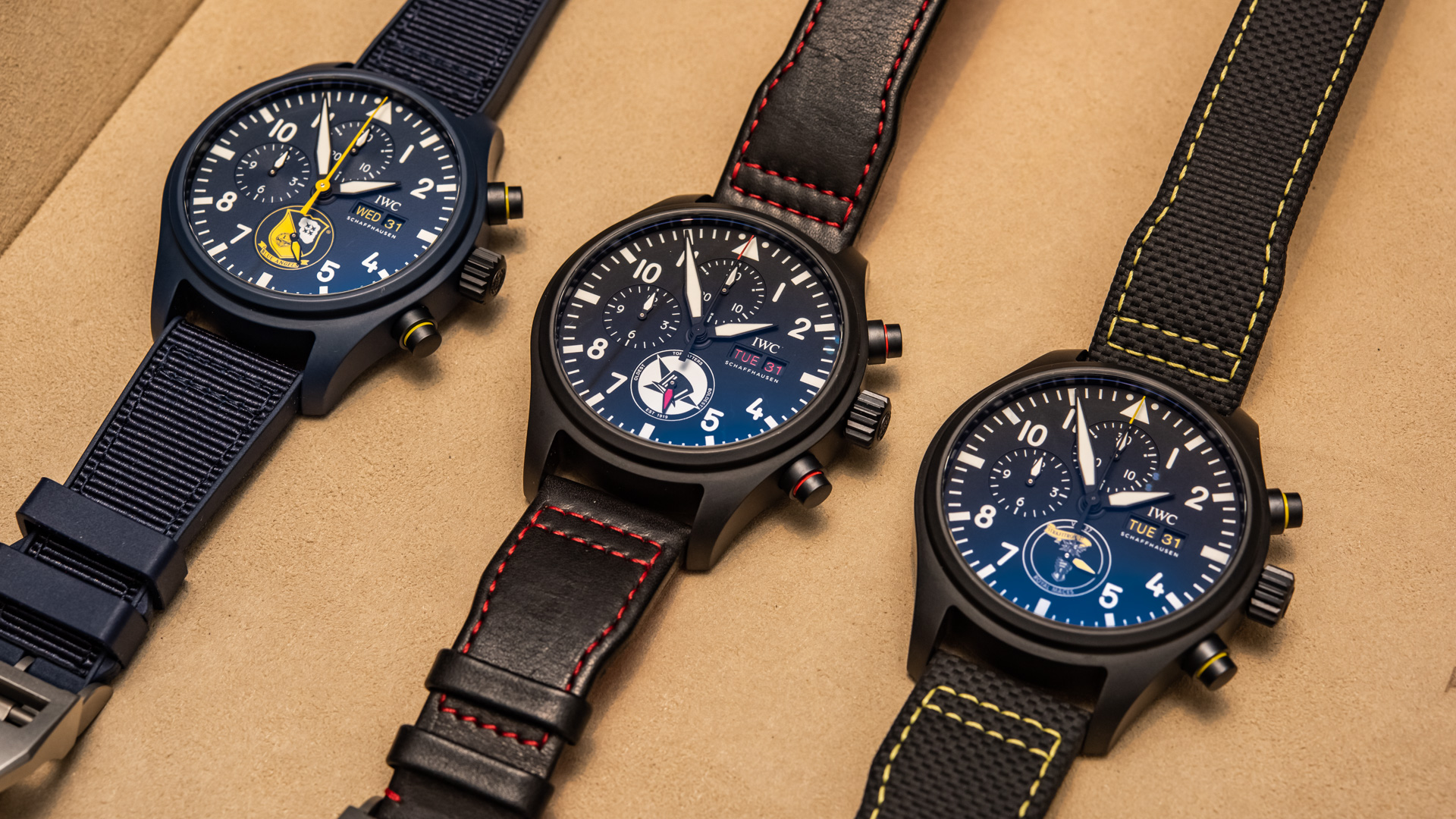
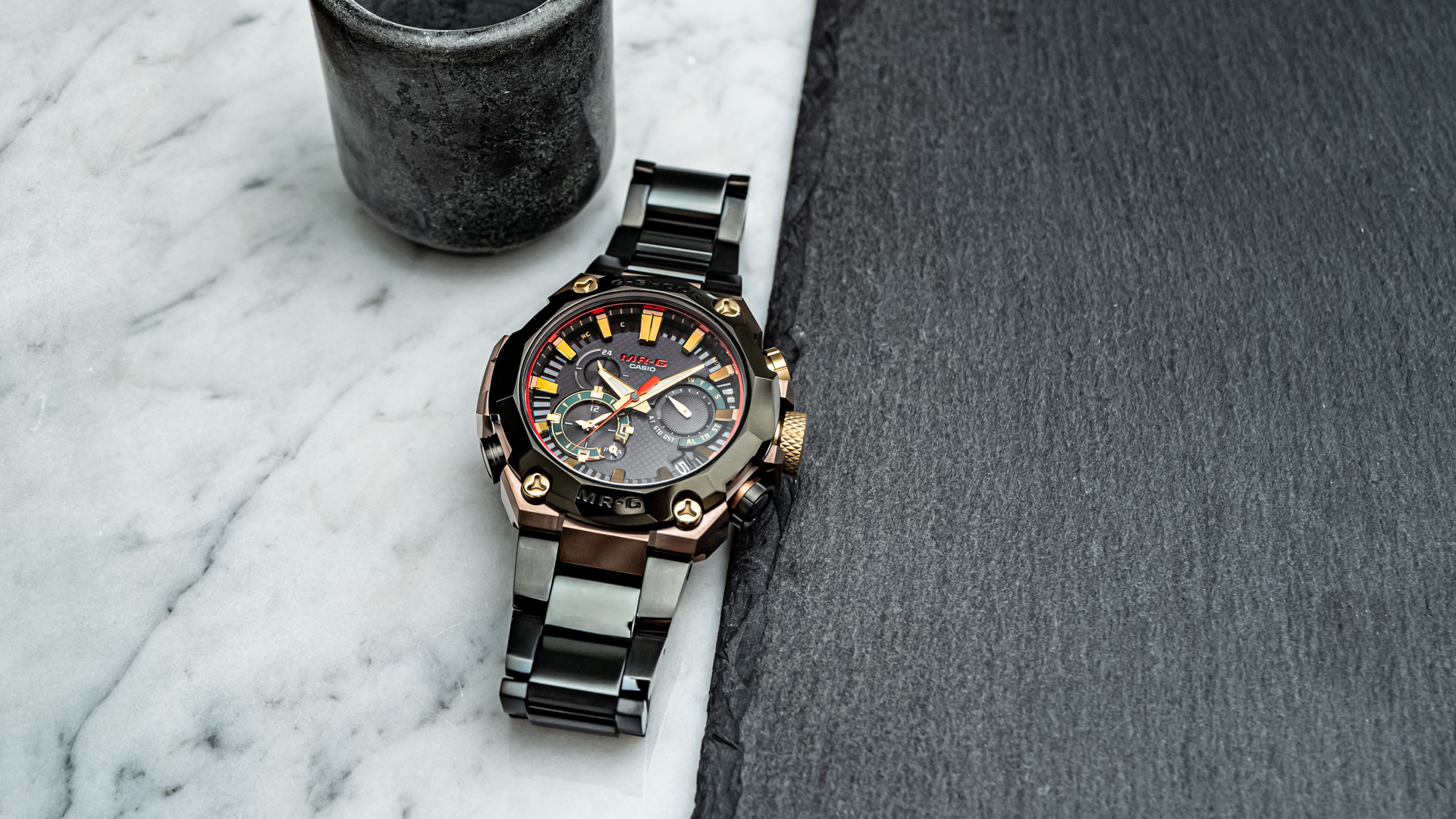


Comments